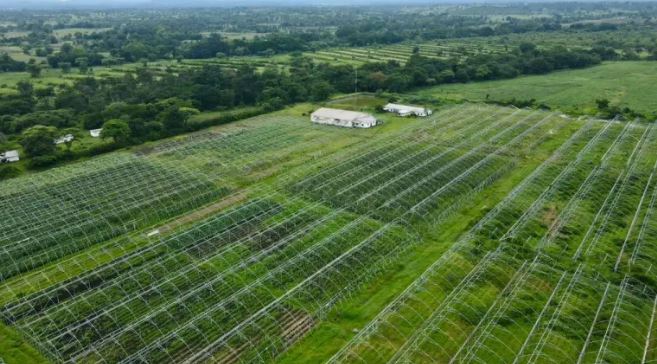Former Ethiopian PM pledges support for revival of Arusha flower farms

The plan aims to renovate the seven closed premium flower farms on Mount Meru's southern slopes in Arusha.
Plans are underway for Tanzania to revive its once-lucrative flower industry following support from the former prime minister of Ethiopia.
The former PM Hailemariam Desalegn, well known for his extensive experience in the agriculture sector during his tenure in Ethiopia, has lent his support to Tanzania's ambitious attempt to resurrect the once-rich cut flower industry.
More To Read
- Tanzania’s CHADEMA party accuses prison authorities of alleged abuse of detainees
- Tanzania police issue fresh warning against nationwide demonstrations
- Tanzania streets deserted as police and soldiers quash Independence Day protests
- Police arrest activists protesting at Tanzanian High Commission in Nairobi
- HRW urges Tanzania to release detained opposition ahead of independence day
- Sweden to phase out bilateral cooperation with Tanzania by August 2026
Together with Tanzania stakeholders, they are seeking to revive thousands of lost employment and boost the nation's economy.
The plan aims to renovate the seven closed premium flower farms on Mount Meru's southern slopes in Arusha.
According to official figures, Tanzania was bringing in $24.5 million in export value from the idle flower estates, directly creating 4,010 jobs and indirectly supporting 40,000 employees, and paying $800,240 in taxes to the government.
Working with the horticulture association (Taha), Arusha Regional Commissioner John Mongella has been putting in extra effort to recover the abandoned 2,107.6-acre flower farms.
Hailemariam, the strategic advisor on agriculture to Tanzania President Samia Suluhu Hassan, promised to use his extensive experience to support Tanzania's initiatives to revive the non-operational farms during his recent fact-finding visit to some closed flower farms.
 Former Ethiopian Prime Minister Hailemariam Desalegn. (Photo: Minasse Wondimu Hailu/AFP)
Former Ethiopian Prime Minister Hailemariam Desalegn. (Photo: Minasse Wondimu Hailu/AFP)
"Ethiopia has achieved success in the gardening sector. I can use such experience and my connections to support your efforts to revive the defunct flower farms, which abound with enormous potential,” Hailemariam informed his host, the Arusha Regional Commissioner.
Strategic plan
The former PM urged Mongella to draft a strategic plan that would include all of the necessary conditions to bring the flower farms back to life.
After coffee, horticulture in Ethiopia emerged as the nation's second-largest source of foreign exchange during his term as prime minister between 2012 and 2018.
In revealing his accomplishment, Hailemariam said that it was the result of a careful balancing act between the state's initiatives and market forces.
Mongella said the move not only gives Tanzania's laborious efforts to revive the flower business a new lease on life but also portends dire consequences for the region's economy.
"We are so delighted to see the influential former prime minister of Ethiopia support our mission to revive the defunct flower farms and restore the local population's hope," said Mongela.
According to the RC, who briefed the former prime minister of Ethiopia, the flower estates employed thousands of people, mostly women and young people, and produced multimillion-dollar profits.
"We cannot wait to see these farms become operational once again to leapfrog other local businesses, recoup thousands of lost jobs, and spawn much-needed revenues in the economy,” Chief Development Manager of Taha, Anthony Chamanga said.
According to Chamanga, Tanzania's Northern Highlands Zone, home of once-rich flower farms, still holds the greatest potential for a variety of horticulture projects.
According to him, the nation's favourable environment, sufficient infrastructure, proximity to the gateway to the markets, helpful technical institutes, and already-established clusters of industries are enough to draw in investors.
Top Stories Today
















































